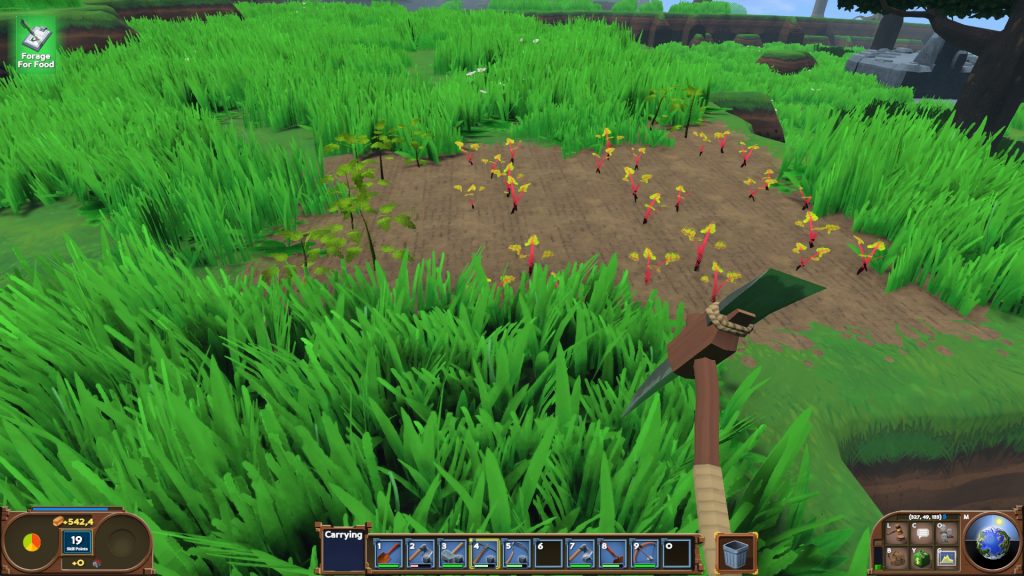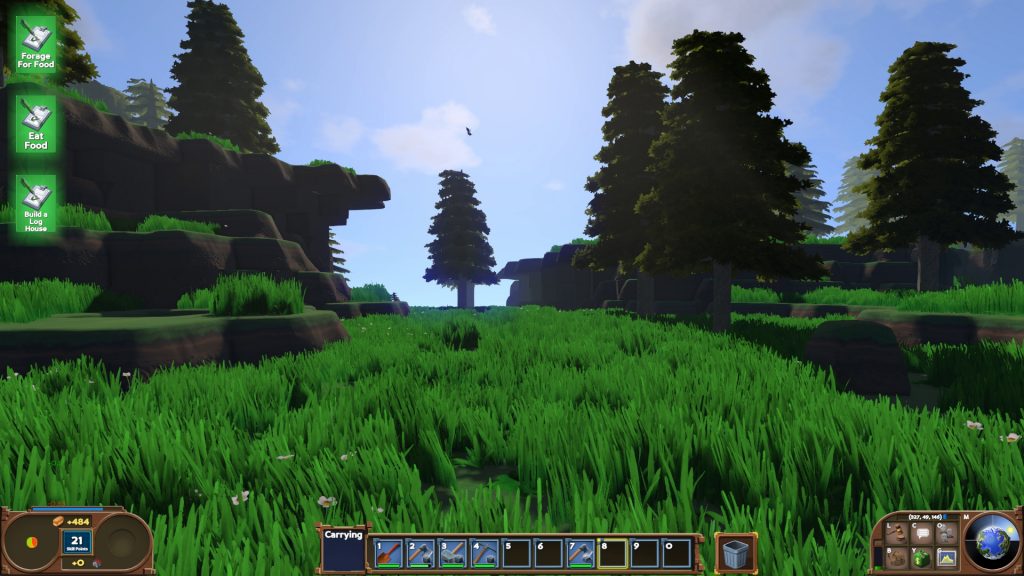Provide some basic guidance
During my ongoing literature review I often discover interesting facts about things I’ve never thought about. Sometimes I can connect these facts with my own observations: The result is mostly a completely new idea why things are as they are. Maybe these ideas are new to you, too. Therefore I’ll share my new science based knowledge with you!
This week: This time, I think about the importance of clearly stating a player’s goals to provide a guideline during a playthrough.
Some weeks ago, I started playing Eco that challenges a player with the task to save the world from a threatening meteor. This task requires the player to gather resources and to research new technologies. However, the more advanced the technologies become, the higher is their impact on the ecology. Thus, Eco demonstrates how the player’s activities lead to a potential pollution of the environment and, as a result of this, players might learn to be more thoughtful about their actions and activities in the real world.
However, despite this very interesting concept of the game, I encountered the problem that I suddenly felt lost. The game provides me with a broad variety of researchable technologies and activities to increase my quality of life inside of the game. Unfortunately, the current version of the game does not provide me with a clear list of things I have to achieve to make some progress. Also, many things and activities seem not well enough explained thus causing some confusion about the effects of my actions.

Farming in Eco
For instance, I created a small farm area, but there are no signs that my farming attempts are going into the right direction of if I need to provide additional infrastructure to grow my crops. As a result, I can merely guess that I need to somehow unlock new skills to have more abilities allowing for an improvement of my farming activities.
Things are even more complicated for the current skill tree that allows me to unlock and improve new actions inside of the game. However, as the structure of the skill tree seems rather confusing, I am frequently unsure, if my choices are going into the right direction.
Of course, there are plenty sources for further information on the internet, but as a player, I prefer to stay within in the boundaries of the game instead of switching to my web browser to research how I can achieve a particular thing inside of a game.
Personally, I enjoy games like Eco that provide a very complex simulation with a great amount of different variables that create a very dense world. However, as long as a player does not exactly know how things can be achieved, the gameplay of those complex games can be also quite frustrating.
In the end, Eco is still in development and many things will be improved over time. In this case, this is not an article about the issues of the game, but more an article discussing the lessons learned and the importance of of game design decisions that might be helpful for new game designers who like to create advanced virtual worlds.
